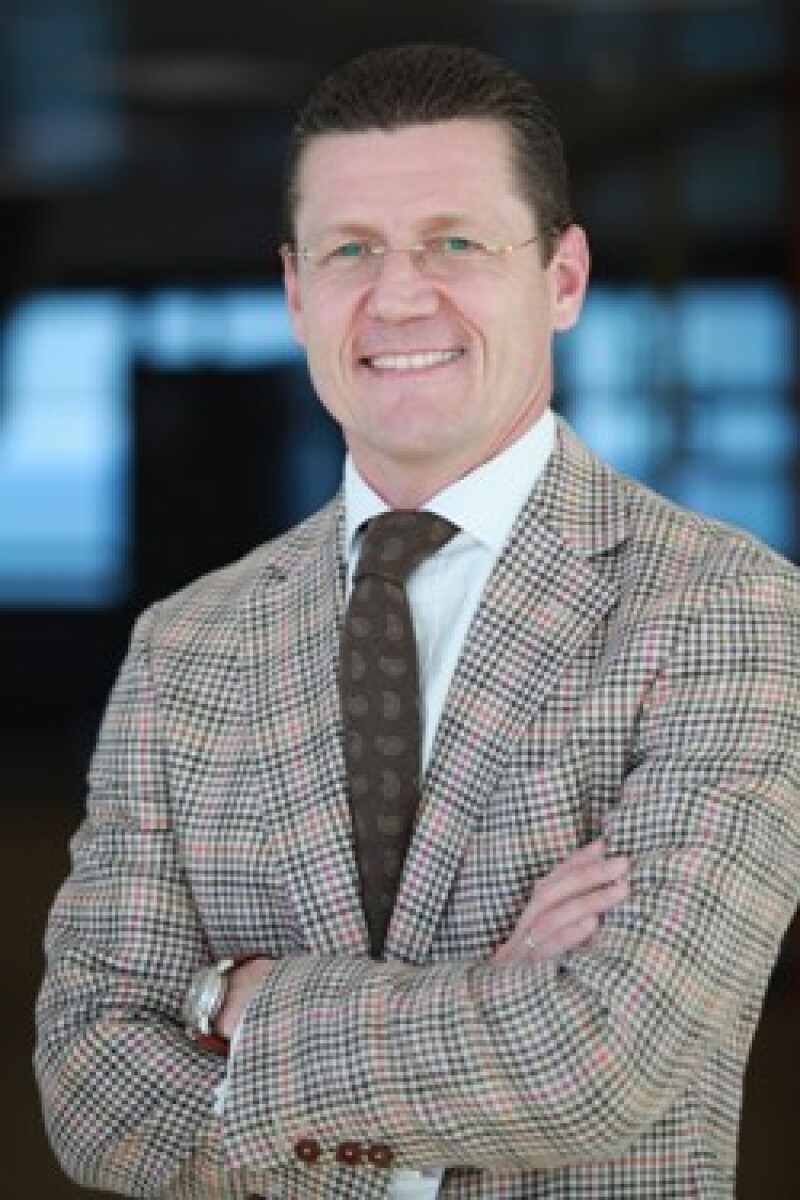This is the full text of an interview conducted during last week’s INTA Annual Meeting in Dallas, Texas, which was reported in the INTA Daily News on Wednesday May 8 (New INTA CEO to push global expansion).
You speak four languages. How did that come about, and which one do you feel most comfortable speaking in?

My mother is French and my dad, who passed away, was Spanish. I started learning English at school and went to the UK many times during the summertime to practice. At OHIM, it was advantageous to be able to speak as many languages as possible. I had a passion for Italian so I spent five summers going to Italy and learning Italian.
I feel most comfortable speaking in Spanish, even though my real mother tongue would be French.
Which language do you think in?
I think in every language, depending on what’s being spoken around me. I’m not yet thinking in English, but within a couple of months I will be. In France I think in French and in Spain I think in Spanish.
What interests do you have outside of IP?
My first interest is my wife and son. Otherwise, I’m a fitness addict, so I need to go to the gym on a daily basis. I am also a soccer fan. I support my home town team, a Spanish team called Real Sociedad. Unfortunately as a result of my schedule at INTA I think I am going to miss the live games.
What are your key objectives, both short-term and long-term, for INTA?
In the short term, it’s listening to people, meeting people, understanding how great this organization is and trying to set a good strategy for the future and implementing the strategy of INTA.
Long term, I think we need to look at INTA’s sustainability ambitiously but realistically. I think it’s time for future expansion, greater communication, and not just reaching our members but reaching public opinion.
When you talk about expansion, do you mean geographically or by increasing INTA’s influence within markets where trademark protection is already strong?
Both. I think it’s very important that we continue growing our membership, particularly corporate members, and I think we also need to reach new members. Our target markets will be the markets that everyone has in mind, such as Asia. I think INTA is doing a great job with China. I think we need to realize how good a job the Chinese government is doing at protecting brands.
We need to look more into Latin America. We should also probably look into Africa as well, and the Middle East.
What are the challenges involved in moving into those jurisdictions?
We need to first respect the culture of the country. We need to shape a little for the future. Shaping the association for the future means looking into the markets and the trends. The world is global, the economy is global. We are in an information-sharing era. We are not yet out of an economic crisis. These are issues we need to take into account.
Do you plan to open any new offices?
I think it’s too early to reply to that. There are certainly plans to look into new geographic areas. Will it be by means of an office or doing more events there? This is something that we need to discuss and the ultimate decision will be made by the board.
What other challenges will INTA face over the next few years?
We need stronger laws protecting trademarks. We need stronger enforcement of such laws. We need more harmonized systems. That means cooperating with the national offices worldwide. Finally, we need to take care of the internet and look at what’s happening there. INTA is already cooperating with ICANN in relation to gTLDs, for example.
There’s been some backlash against IP recently with internet protests against SOPA and PIPA and the protests against ACTA, followed by the vote against it in the European Parliament. How is INTA responding to these kinds of events?
I think that INTA will need to move a step further and try to reach public opinion. We tend to talk within our IP community and we really need to reach public opinion outside of that and explain how brands are important to investment, to growth, etc. This will probably be by means of partnership, by cooperating with associations that might not be IP-related.
The INTA Annual Meeting has gained such a strong reputation as a great place to make and maintain contacts that some firms just come to town for the networking and don’t register for educational events. Do you find that frustrating or flattering?
We have over 9,000 members registered for the educational sessions this year. I think it’s certainly good that people are concerned about IP. I also think that we need to find ways to help people understand that actually participating in the Annual Meeting is contributing to the efforts INTA is making on their behalf. It’s a question of solidarity.









